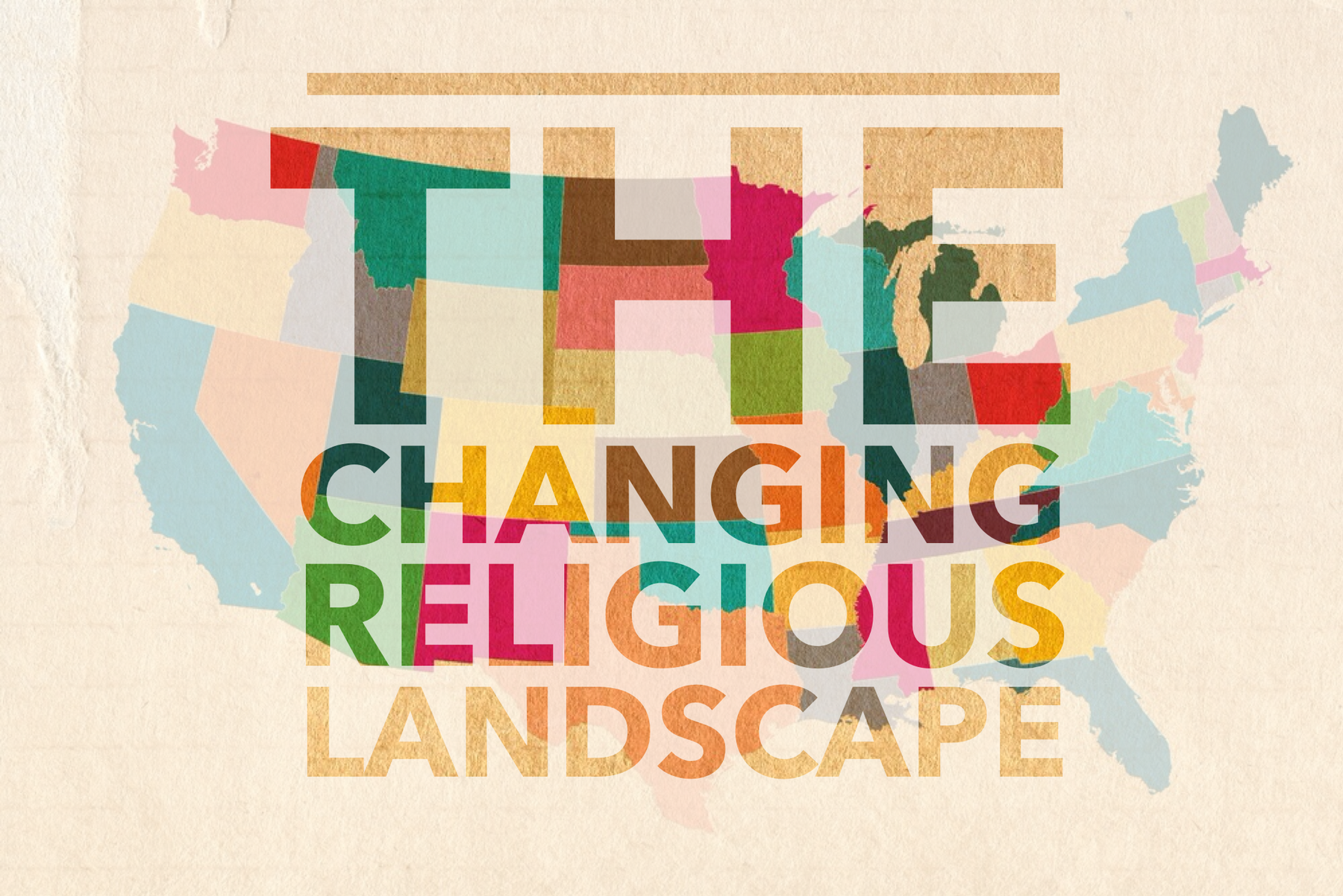
What America's Changing Religious Landscape Means For The Teenagers In Your Youth Ministry
The Christian share of the U.S. population is declining, while the number of U.S. adults who do not identify with any organized religion is growing, according to an extensive new survey by the Pew Research Center.
So says a recent study done by Pew Research. This isn’t necessarily new information. Pew has conducted similar studies before, as has Barna and others. But this recent study does have some interesting numbers I think it’s worth looking at.
I want to unpack some of the numbers and then discuss how they impact youth ministry as a whole.
Here is a summary of some of the major findings.
- Christianity is still the dominant religion in the US. Almost 7 in 10 Americans identify as Christians.
- The percentage of Americans who describe themselves as Christians has dropped by nearly 8% in just seven years, from 78% in 2007 to 70% in 2014.
- Over the same period, the % of Americans who are atheist, agnostic or “nothing in particular” has jumped from 16% to 23%.
- There are now 56 Million Americans who identify as “zero religious affiliation.” This makes this group more numerous than either Catholics or mainline Protestants, and second only in size only to evangelical Protestants among major religious groups in the U.S.
- Mainline Protestants and Catholics have shrunk by 3% since 2007. Evangelical Protestants declined 1% over the same time. Mainline churches saw the highest number of people leave its rolls. The survey suggests that somewhere between 3 and 7 million members left mainline churches.
- The average age of those who identify as religious is rising while the average age of those who have zero religious affiliation is declining.
If you read nothing else I write here today, read these three points from the study brief:
- One of the most important factors in the declining number of Christians is generational replacement. As the Millennial generation enters adulthood, its members display much lower levels of religious affiliation, including less connection with Christian churches, than older generations. Fully 36% of young Millennials (those between the ages of 18 and 24) are religiously unaffiliated, as are 34% of older Millennials (ages 25-33).
- Less than 60% of Millennials report any identification with any branch of Christianity. Over 70% of older generations, including Baby Boomers and Gen-Xers, report an affiliation of some sort.
- 20% of Millennials identify as Evangelicals. 16% of Millennials are Catholic. Only 11% identify with mainline Protestantism.
What does this mean for the teenagers who are passing through our ministries?
The cultural morality they encounter is different from the cultural morality of their parents and grandparents.
This may seem like an obvious truth to us. But it's worth noting. Consider the cultural changes of the 60's. Cultural morality was shifting. The sexual revolution happened. Drug use was glamorized. But it was still a counter-cultural element and not mainstream. The same can be said of the excess of the 80's, to a lesser extent. But the world our students live in is one where there is less of a standard for morality than ever before. So many of our cultural norms have shifted and changed. Our students find themselves, maybe more than any generation before them, awash in a sea of competing worldviews, truth claims, and philosophies. It's their reality. And they navigate it each day.
It is as important as ever for students to be able to articulate their faith.
Against a backdrop where God and His Word are increasingly seen as irrelevant and flat-out false, it's as important as ever that students know what they believe. Grasping their identity in Christ, knowing God's character, understanding how God has worked throughout history to redeem humankind, and growing in their knowledge of God's ways are all vital aspects of a faith that is increasingly being marginalized by society.
There is AMAZING opportunity for the Gospel.
Forget the hand wringing! With more people reporting no religious affiliation, there is more opportunity for the Gospel to transform people's lives. The harvest is indeed plentiful. And the teenagers in our ministries are in a perfect position to be used by God to impact the world around them for the Gospel.
This changing cultural landscape is our reality. It's the world our students are coming of age in. It presents significant challenges and awesome opportunities. And because of this, it is as important as it ever has been for us to partner with parents and the greater Church to lead students to know Christ more and to live out the Gospel.




Leave a comment